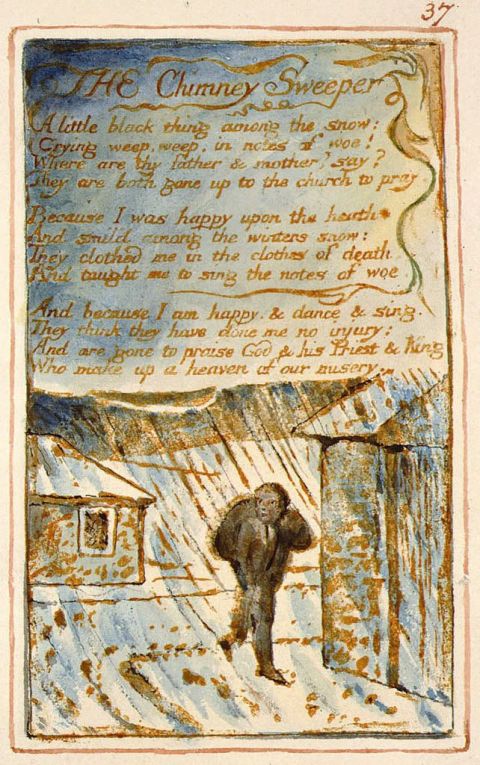Songs of Experience
Introduction
Hear the voice of the Bard!
Who Present, Past, & Future sees
Whose ears have heard,
The Holy Word,
That walk'd among the ancient trees.
Calling the lapsed Soul
And weeping in the evening dew:
That might controll,
The starry pole;
And fallen fallen light renew!
O Earth O Earth return!
Arise from out the dewy grass;
Night is worn,
And the morn
Rises from the slumberous mass.
Turn away no more:
Why wilt thou turn away
The starry floor
The watry shore
Is giv'n thee till the break of day.
*Genesis 3.8: "And [Adam and Eve] heard the voice of the Lord God waling in the garden in the cool of the day." The Bard, or poet-prophet, whose imagination is not bound by time, has heard the voice of the Lord in Eden. (from Norton Anthology footnote)
*Another version of Genesis 3.8-9. "Then the man and his wife heard the sound of the Lord God as he was walking in the garden in the cool of the day, and they hid from the Lord God among the trees of the garden. But the Lord God called to the man, 'Where are you?'"
Questions
1. What is the subject of "calling" at the beginning of Stanza 2? The Bard or the Holy Word?
2. What is the subject of "might controll"?
3. What is the tone of this poem? Angry, Resentful, Sympathetic, Unhappy, Sad, Hopeful, Optimistic?
4. Any difference with the poem with the same title in Songs of Innocence?
The Chimney Sweeper

A little black thing among the snow,
Crying "weep! 'weep!" in notes of woe!
"Where are thy father and mother? say?"
"They are both gone up to the church to pray.
Because I was happy upon the heath,
And smil'd among the winter's snow,
They clothed me in the clothes of death,
And taught me to sing the notes of woe.
And because I am happy and dance and sing,
They think they have done me no injury,
And are gone to praise God and his Priest and King,
Who make up a heaven of our misery."
Questions
1. Any difference in the tone of voice in the narrator's words in comparison with "The Chimney Sweeper" of Innocence?
2. As a social criticism, which chimney sweeper you think is more effective?
